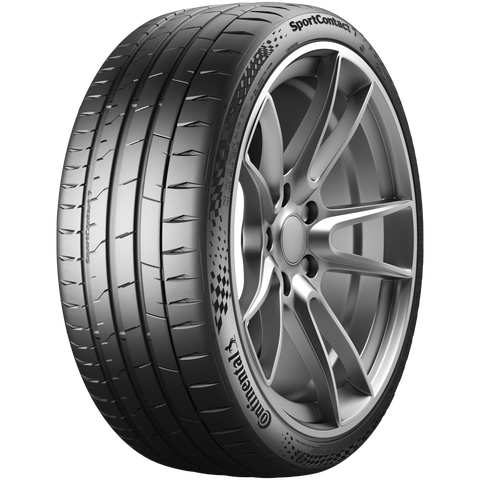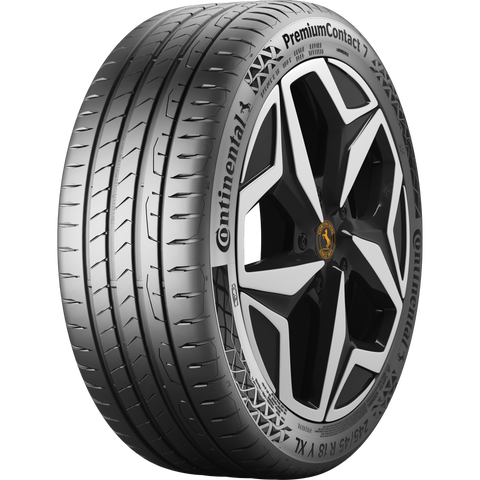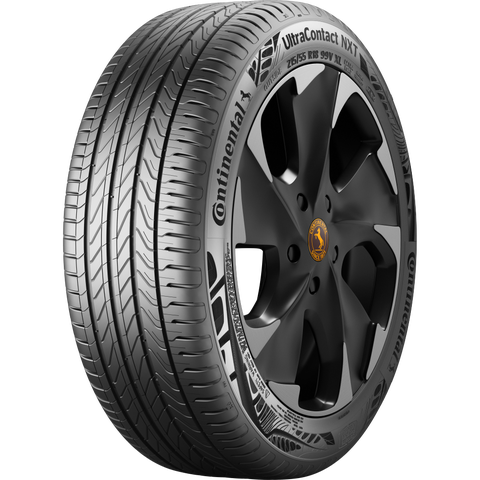
# Tire Change and Fitting
Summer tires vs. winter tires
Matching the right tires to the right season
The weather changes throughout the year, which affects driving conditions on the road. Your vehicle will benefit from having tires fitted to the wheels that are specifically intended for your driving habits and regional weather conditions. In some countries, winter tires are even a legal requirement. In this section, we will discuss the differences between three tire categories; summer tires, winter tires, or all-season tires.
Continental offers a variety of tires designed with leading technology to match all your driving needs. No matter what season it is, Continental will have you covered.
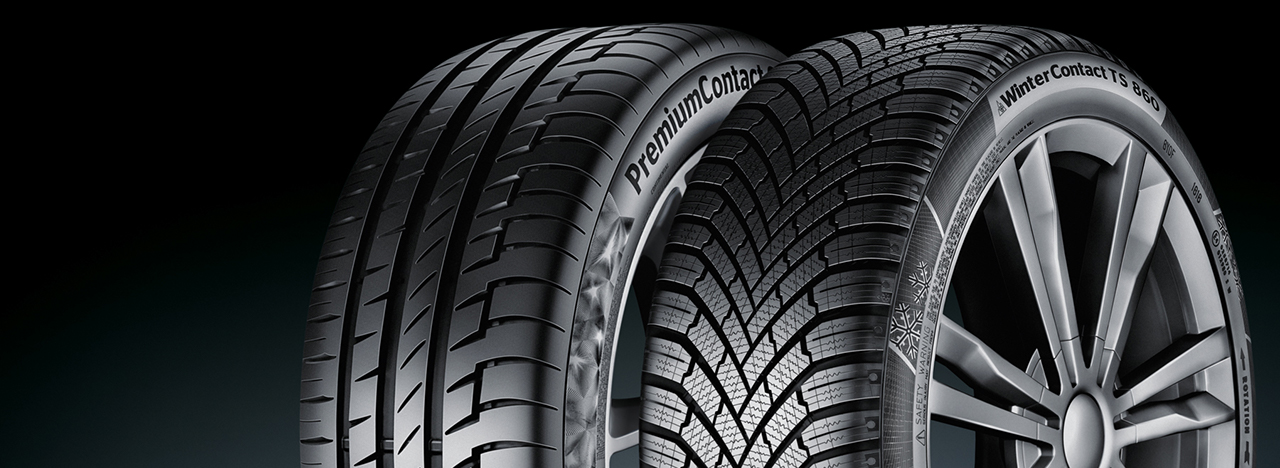
What’s the difference between winter tires and summer tires?
- Winter tires feature a deeper tread (up to about 10 mm) and a rubber compound that remains flexible in cold temperatures, offering them better traction on snow and ice. They are equipped with more sipes and deeper grooves, which help them grip icy surfaces and push out snow and water for safer braking.
- Using summer tires in winter conditions will significantly increase stopping distances – sometimes several times longer – making driving much more hazardous. Winter tires, on the other hand, don’t perform well in warm weather, as the soft rubber becomes too pliable, decreasing stability and extending braking distances.
- Summer tires have a lower tread (around 6 to 8 mm) and a harder rubber compound designed to withstand heat without losing its firmness. They feature fewer sipes and a more solid tread pattern, which improves handling, braking responsiveness, and overall performance in warmer conditions. Their grooves are optimized to clear water efficiently, minimizing the risk of hydroplaning while ensuring strong traction on wet or dry roads.
When do you need summer tires?
During the warmer season, where temperatures climb above 7 °C, you should fit your wheels with summer tires. They provide high grip levels on wet and dry roads through their dedicated tread patterns and tread compounds. Summer tires also provide high stability in curves and optimal mileage performance at summer temperatures.
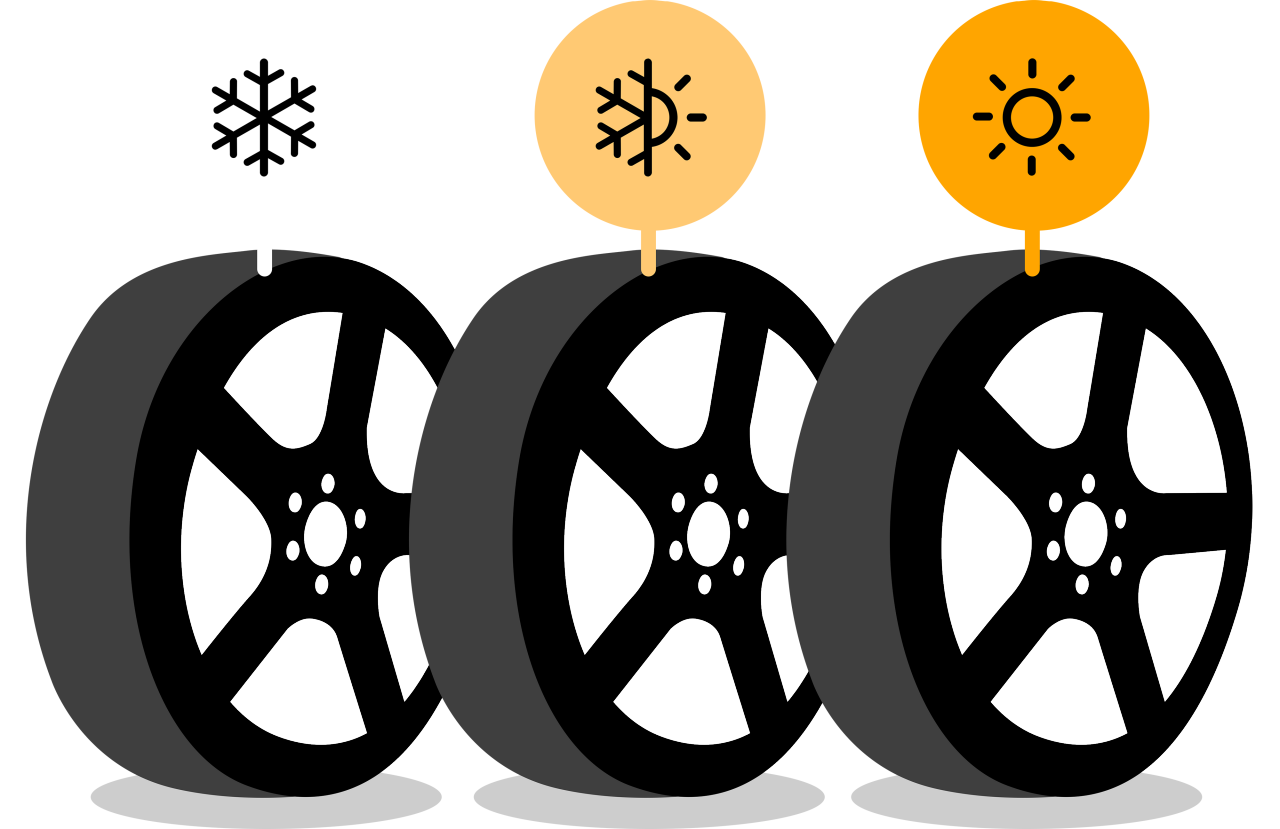
This means you can confidently drive your car on both dry and wet slippery roads during the warmer months. Remember, however, that summer tires are not suitable for winter conditions, so be sure to switch your tires when the season calls for it.
Discover our summer tires
Find your tireWhen do you need winter tires?
When the temperature falls below 7 °C (46 °F), it's time to switch to winter tires. These tires perform well in all winter conditions, ranging from snow and ice to wet and cold dry roads. They provide enhanced braking performance in snowy and icy conditions and feature a highter tread pattern, clearing away slush and digging into snow for greater traction.
Another reason they're so effective is that they are made of an optimized rubber compound that stays soft and flexible at low temperatures for better vehicle control. In addition, using the wrong tires in winter conditions can result in less grip and safety. However, it’s not advisable to use winter tires in warm weather; this softer compound will wear out faster on dry tarmac and need replacing sooner.
Discover our winter tires
Find your tireSummer and winter tires vs. all-season tires
All-season tires are a versatile solution, designed to perform across a broad range of temperatures, from approximately -10 °C (14 °F) up to +30 °C (86 °F). They combine features from both summer and winter tires, providing reliable traction on dry and wet roads throughout the year. These tires can also handle light snow, while generally offering a quieter and more comfortable ride compared to dedicated winter tires.
On warmer roads, typically above 7 °C (45 °F), all-season tires have lower rolling resistance than winter tires, enhancing fuel efficiency and overall performance. However, despite their versatility, all-season tires don’t match the performance of winter tires in severe cold, heavy snow, or icy conditions, where winter tires remain the safest choice.
- Winter tires: Recommended for drivers who frequently navigate snow-covered roads, experience very low temperatures, or drive in steep or unplowed areas.
- All-season tires: Best suited for regions where snow is infrequent or for those who only occasionally drive in winter conditions.
- Summer tires: Provide superior grip compared to all-season tires, even in rainy conditions, due to their firmer rubber compound that ensures strong traction on both wet and dry pavement. They typically offer shorter braking distances in most warm-weather conditions, delivering a more responsive and controlled driving experience. Summer tires are ideal for regions with mild winters, where temperatures consistently remain above 7 °C (45 °F), and snow or ice are uncommon.
Related content
-
 2026/01/21Winter tires are the undisputed champion when it comes to colder climates, but their unique features are a disadvantage if used in warmer temperatures.Winter tires in summerRead more
2026/01/21Winter tires are the undisputed champion when it comes to colder climates, but their unique features are a disadvantage if used in warmer temperatures.Winter tires in summerRead more -
 2026/01/21Winter is a time to put winter tires on your car. We recommend against using summer tires if there's any snow, ice, or the temperature is freezing.Summer tires in winterRead more
2026/01/21Winter is a time to put winter tires on your car. We recommend against using summer tires if there's any snow, ice, or the temperature is freezing.Summer tires in winterRead more -
 2026/01/21Whether it’s an emergency puncture situation or you’re switching your seasonal set – here’s your step-by-step guide to changing a tire.How to change a tireRead more
2026/01/21Whether it’s an emergency puncture situation or you’re switching your seasonal set – here’s your step-by-step guide to changing a tire.How to change a tireRead more
